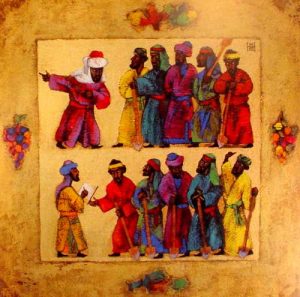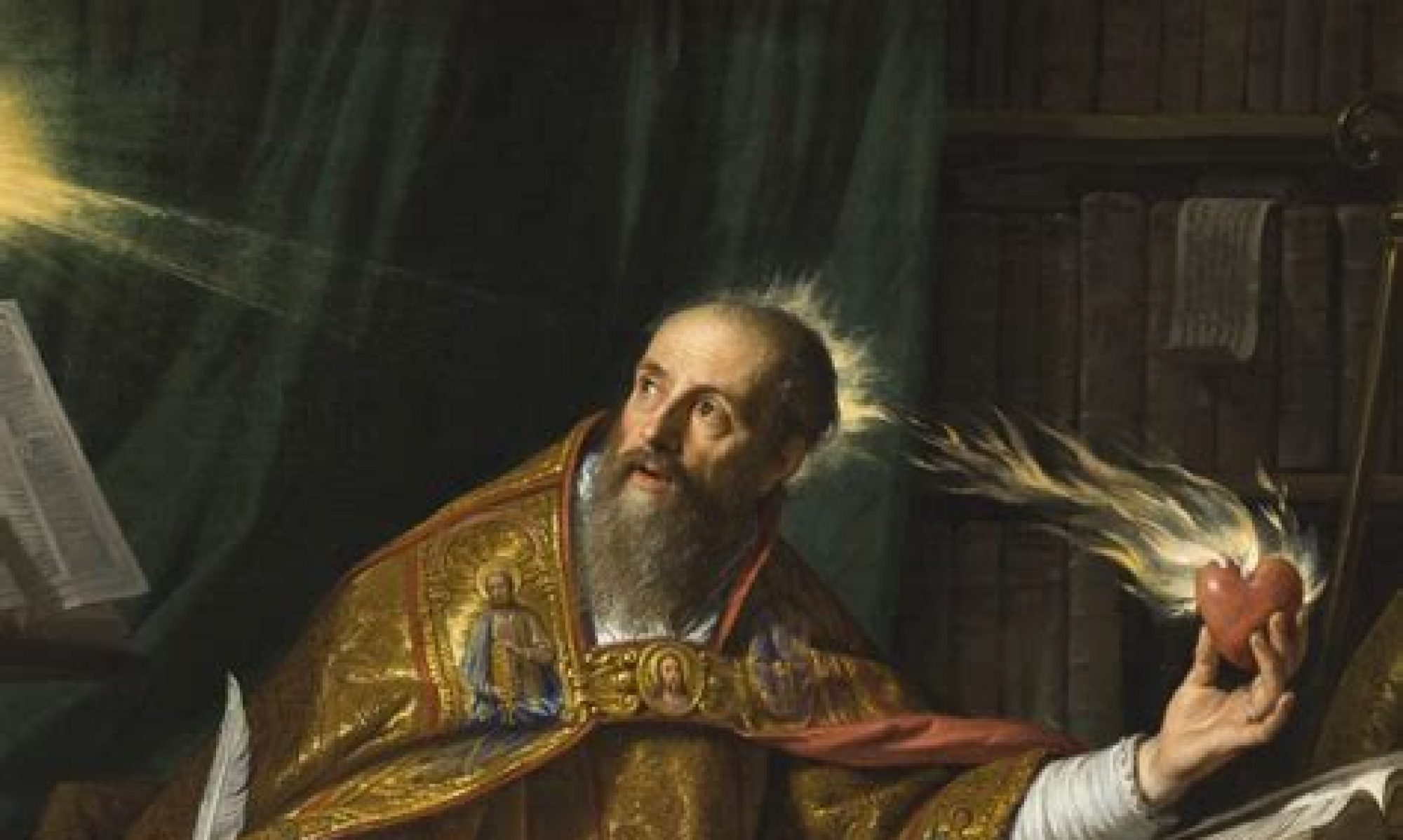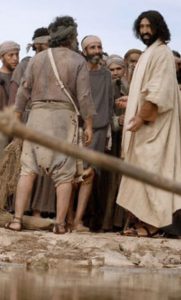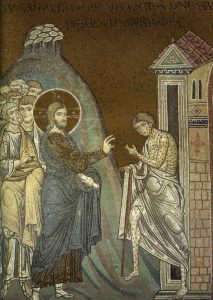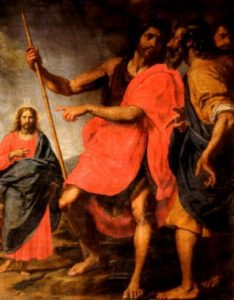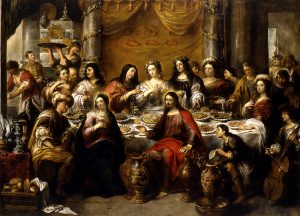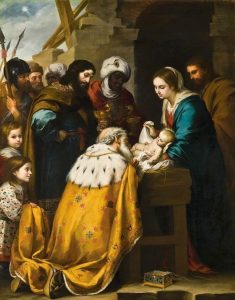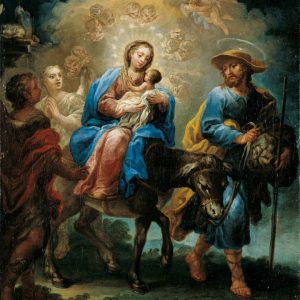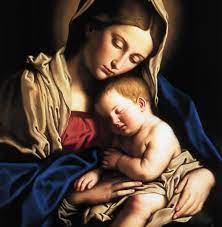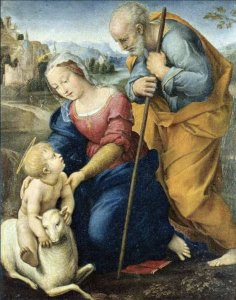Last Sunday we were celebrating the 3rd Sunday after Epiphany, and today we celebrate the Septuagesima. Most probably we are scratching our head understanding the liturgical cycle of the Extraordinary Form. In the Novus Ordo, we have the “Ordinary Time” which the Latin calls it the “Time after Epiphany” and “Time after Pentecost”.
Septuagesima begins today. The liturgical seasons in the 1962 Extraordinary Form include a Pre-Lent season called Septuagesima. It is an extra season and the shortest season in the 1962 Extraordinary Form. The word Septuagesima is Latin for “seventieth.” Pre-Lent consists of 3 Sundays with particularly numbered names, Septuagesima (seventieth), Sexagesima (sixtieth), and Quinquagesima (fiftieth). These numbers do not really reflect that number of days before Easter, as their names suggest. The titles seem to be arbitrarily chosen, since the 1st Sunday in Lent was called Quadragesima (fortieth), and the three Sundays before Quadragesima were named after the nearest round figures, 70, 60 and 50.
The Septuagesima season was to help people into Lent as a kind of a preconditioning program. Liturgically, it looked like Lent because the Gloria and Alleluia are no longer allowed, which set the tone of penitential with a purple vestment that I am wearing. It is more interesting to be more familiar with the Liturgical calendar and the season we are celebrating.
Aside from knowing the liturgical calendar, there is another event that we are looking forward to, the 58th Super Bowl game this year in Las Vegas. To win in any sports game, there must be teamwork, determination, sacrifice, discipline, perseverance and fitness. We heard from St. Paul how “athletes exercise self-control in all things” (1 Cor 9:25) to get a victory. It is necessary also for all Christians, exercising our faith, that we should strive to be like that victor. The medal is not the prize we aim for, but the imperishable reward in heaven is what we strive for. Our aim is proclaiming the good news to others (V.23) because we are motivated to heed His call. We cannot do this alone but as brothers and sisters bound up in community of faith brought together by God. According to St. Paul, the journey of faith is not easy but demands us to endure and to await the reward of eternal life which is immaterial, yet richly present now.
The gospel today from St. Matthew narrates to us a parable of the Tenants. At the very end of the parable, the owner of the vineyard uttered these words, “Are you envious because I am generous? So, the last will be first, and the first will be last.” (vv.15-16). There are moments that we are part of the story as laborers, who worked the whole day. However, the way the master of the vineyard deals with us on how he would pay us was always under his discretion, unless we have agreed upon an amount for the service we render. Here are some reflective points to ponder:
First, the logic of God is incomprehensible and unfathomable. Our human mind is different from Jesus’ point in this parable. We focus on what is fair and what we deserve and obscure our minds to understand God’s generosity. Please get rid of that mindset. When you work harder than someone else that does not mean you will get paid more. Sometimes other workers receive an insurmountable amount of tips from the customers.
Second, this parable also has a deeper spiritual meaning just like Jesus‘ other parables which connote rich teachings about life and our relationship with God. Think of the many occasions when we are late coming workers being called and hired, and yet we have earned an enormous amount of grace and mercy from God than the others.
Third, sometimes we earned it or perhaps it was given gratis or free! But some will still not be satisfied because they think they won’t have enough. We must be always grateful to God. There are many stories in the gospel that surprise us because the undeserving ones become recipients of God’s grace. God’s grace overturns everything which we think isn’t aways fair. But none of us have earned it.
I don’t always share jokes. I seldom do that but when it is related to the gospel I do because I want to put emphasis on my point. So here it is. A man dies and meets Peter at the pearly gates of heaven. Peter said, “Before I accept you to enter heaven, please convince me and present 300 point credits of good things you have done on earth.” “Well,” the man said, “I was married once and faithful to my wife and family.” Peter said, “You earned 3 points. What else did you do?” The man continued, “I was a hardworking person who treated my co-workers fairly with love and respect.” Peter said, “Acceptable good work, you get another 2 points.” He continued with St. Peter’s encouragement and replied again, “I earned lots of money and I regularly pay my church tithing, but I thought it was enough without being charitable to those who are in need and to my pastor.” St, Peter said, “Good but you earned only 2 points because of your neglect and being unmindful to becoming generous. You only need two hundred and ninety-three more.” The man responded, “What?” Peter says, “yes!” Then, the man continued, “But that’s impossible! It will only be by the grace of God that anyone earns that many points.” Peter says, ‘You are correct!” and immediately opens the pearly gates to let him enter the kingdom of heaven.
St. Augustine says, “Too late have I loved you, O Beauty and so ancient and so new. Too late have I loved you! You were within me, but I was outside myself and there I sought you! In my weakness, I ran after the beauty of the things you have made. You were with me, and I was not with you.” (Confession book 10: Chapter XXVII)
It is true, too late have we loved God. We cannot imagine how God is generous to give us the grace we don’t really earn. No one deserves what God has given us; we’ve only to realize that at the end of our journey we receive a full day’s wage. This is what the parable reminds us all.
God bless you.
Fr. Arlon, osa
